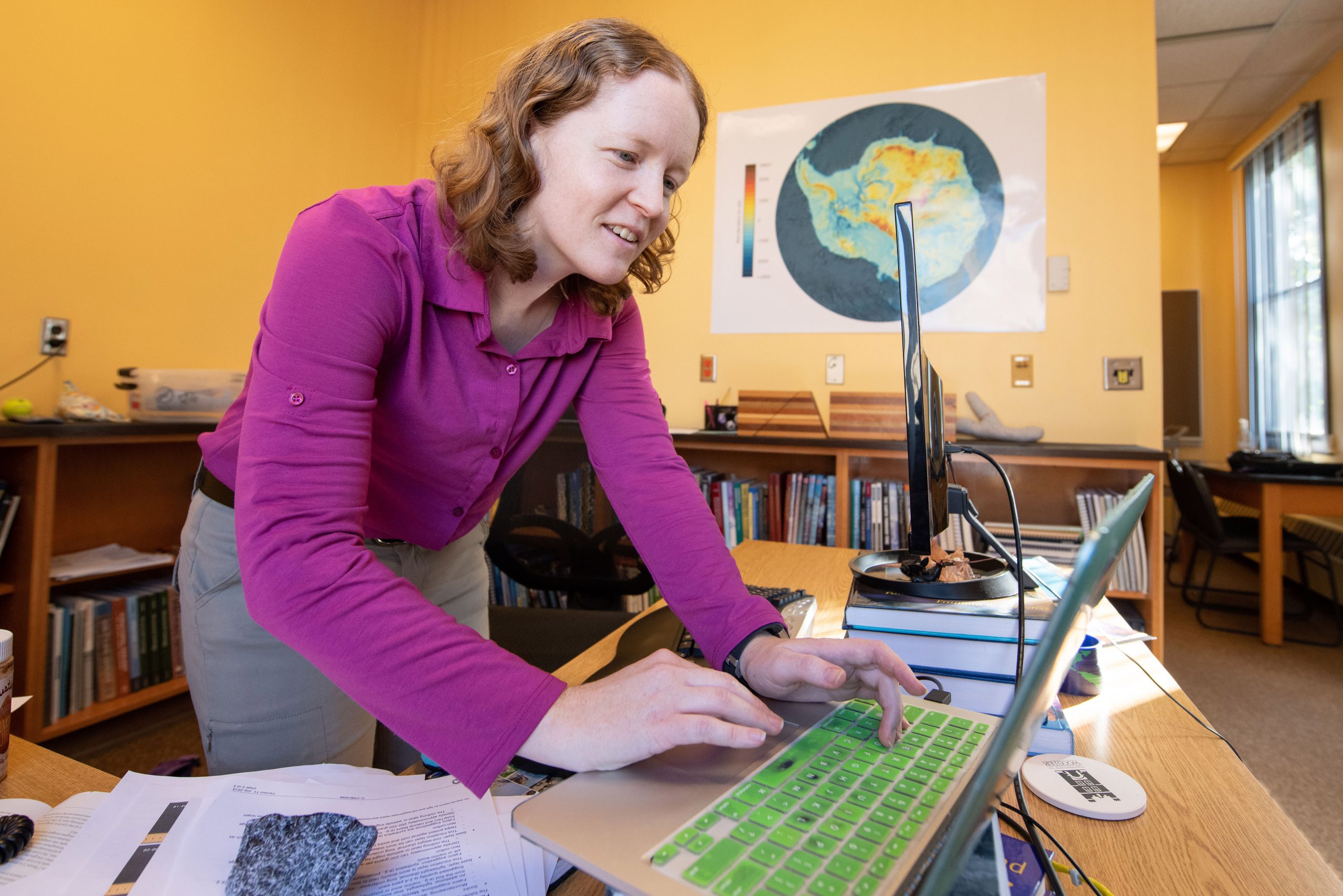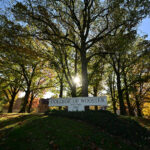
Wooster Professor Is Lead Author in New Study on Antarctic Conditions That Are Causing Sea-Level Rise

WOOSTER, Ohio – An informative study, authored by Karen Alley, assistant professor of earth sciences at The College of Wooster and published in Science Advances on Wednesday, describes how upside-down “rivers” of warm ocean water are helping to create conditions that lead to ice-shelf breakup and sea-level rise in Antarctica.
These upside-down rivers are eroding the already fractured edges of thick, floating Antarctic ice shelves from below, thus speeding up the process of the continent’s contribution to rising seas, which Alley says “drives all of (her) research.”
“Warm water circulation is attacking the undersides of these ice shelves at their most vulnerable points,” stated Alley in a news release by the Cooperative Institute for Research in Environmental Studies (CIRES), a partnership of the National Oceanic and Atmospheric Administration and the University of Colorado Boulder, where she earned a Ph.D. “These effects matter. But exactly how much, we don’t know yet. We need to.”
The article, titled “Troughs developed in ice-stream shear margins precondition ice shelves for ocean-driven break-up,” details how two factors working together are weakening the ice shelves – the floating sheets of ice that extend from grounded glaciers on land (three-quarters of the Antarctic continent is surrounded by these extensions of the ice sheet). Flowing ice often stretches and cracks along its edges, or “shear margins,” especially when it’s flowing quickly, according to Alley. Because this stretching and cracking thins the ice in the shear margins, they’re more vulnerable to erosion from below by the “warm upside-down rivers,” which can be “miles wide and tens of miles long.”
The scientists, whose work was funded by the U.S. Geological Survey and the National Science Foundation, put it all together and concluded that the warmer waters are finding those thin spots along the ice shelf, leading to further erosion and weaker margins and making ice shelves more vulnerable to collapse. “In these new findings, we found that ice shelves found in areas of warm water are probably more likely to fall apart than we thought they were,” Alley summed up.
Alley emphasized that this is only a first step in the research. “New modeling needs to be done to see how important this effect is. We have to understand what the ice shelves are going do to in the future,” she said.
The research for this publication was accomplished by examining a lot of satellite imagery, along with surface elevation data from across the continent, however, Alley will get a firsthand look for the first time in her career at the Antarctic ice shelves from Nov. 16-Feb. 1. She describes the approaching fieldwork as a “dream come true,” as she’ll have the opportunity to use seismic instruments and ground-penetrating radar to study the ice-ocean interactions happening near the Thwaites Glacier and Dotson Ice Shelf in West Antarctica.
Katy Human, communications director at CIRES, contributed to this story.
Posted in News on October 9, 2019.
Related Posts
Related Areas of Study
Earth Sciences
Geology, environmental geoscience, geophysics, and other classes that explore Earth and the impact of humans
Major MinorGeology
Start research in your first year and graduate with a strong foundation in the Earth Sciences.
Major MinorEnvironmental Geoscience
Investigate the impact humans have on the Earth and research ways to solve pressing environmental problems.
Major Minor

